You Don't Know Us Negroes and Other Essays
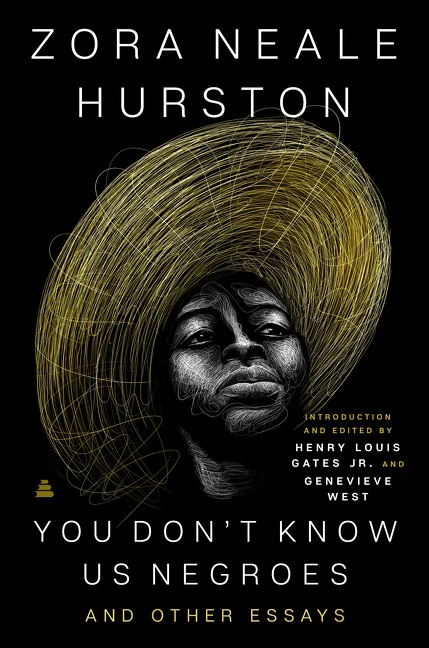
A MOST ANTICIPATED BOOK FROM: Oprah Daily, Business Insider, Marie Claire, The Seattle Times, Lit Hub, Bustle, and New York Magazine’s Vulture
Introduction by New York Times bestselling author Henry Louis Gates Jr.
Spanning more than 35 years of work, the first comprehensive collection of essays, criticism, and articles by the legendary author of the Harlem Renaissance, Zora Neale Hurston, showcasing the evolution of her distinctive style as an archivist and author.
“One of the greatest writers of our time.”—Toni Morrison
You Don’t Know Us Negroes is the quintessential gathering of provocative essays from one of the world’s most celebrated writers, Zora Neale Hurston. Spanning more than three decades and penned during the backdrop of the birth of the Harlem Renaissance, Montgomery bus boycott, desegregation of the military, and school integration, Hurston’s writing articulates the beauty and authenticity of Black life as only she could. Collectively, these essays showcase the roles enslavement and Jim Crow have played in intensifying Black people’s inner lives and culture rather than destroying it. She argues that in the process of surviving, Black people re-interpreted every aspect of American culture—“modif[ying] the language, mode of food preparation, practice of medicine, and most certainly religion.” White supremacy prevents the world from seeing or completely recognizing Black people in their full humanity and Hurston made it her job to lift the veil and reveal the heart and soul of the race. These pages reflect Hurston as the controversial figure she was—someone who stated that feminism is a mirage and that the integration of schools did not necessarily improve the education of Black students. Also covered is the sensational trial of Ruby McCollum, a wealthy Black woman convicted in 1952 for killing her lover, a white doctor.
Demonstrating the breadth of this revered and influential writer’s work, You Don’t Know Us Negroes and Other Essays is an invaluable chronicle of a writer’s development and a window into her world and mind.
Praise for You Don't Know Us Negroes and Other Essays
You Don’t Know Us Negroes” adds immeasurably to our understanding of Hurston, who was a tireless crusader in all her writing, and ahead of her time…— New York Times Book Review
Hitting a Straight Lick with a Crooked Stick
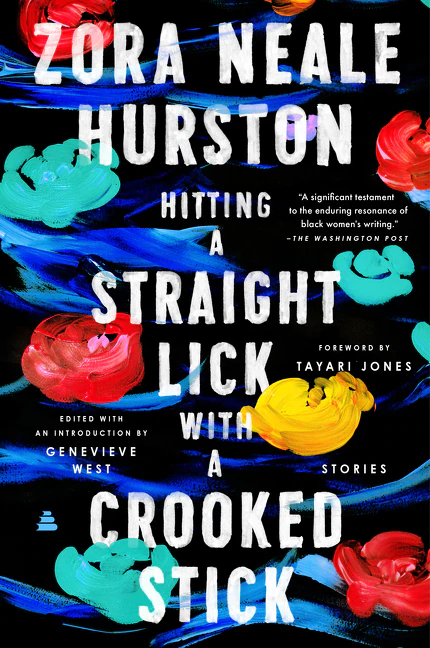
From “one of the greatest writers of our time” (Toni Morrison)—the author of Barracoon and Their Eyes Were Watching God—a collection of remarkable stories, including eight “lost” Harlem Renaissance tales now available to a wide audience for the first time.
New York Times’ Books to Watch for
Buzzfeed’s Most Anticipated Books
Newsweek’s Most Anticipated Books
Forbes.com’s Most Anticipated Books
E!’s Top Books to Read
Glamour’s Best Books
Essence’s Best Books by Black Authors
In 1925, Barnard student Zora Neale Hurston—the sole black student at the college—was living in New York, “desperately striving for a toe-hold on the world.” During this period, she began writing short works that captured the zeitgeist of African American life and transformed her into one of the central figures of the Harlem Renaissance. Nearly a century later, this singular talent is recognized as one of the most influential and revered American artists of the modern period.
Hitting a Straight Lick with a Crooked Stick is an outstanding collection of stories about love and migration, gender and class, racism and sexism that proudly reflect African American folk culture. Brought together for the first time in one volume, they include eight of Hurston’s “lost” Harlem stories, which were found in forgotten periodicals and archives. These stories challenge conceptions of Hurston as an author of rural fiction and include gems that flash with her biting, satiric humor, as well as more serious tales reflective of the cultural currents of Hurston’s world. All are timeless classics that enrich our understanding and appreciation of this exceptional writer’s voice and her contributions to America’s literary traditions.
Praise for Hitting a Straight Lick with a Crooked Stick
These narratives comprise a rich tapestry of Hurston’s matchless vision and talent.— BookPage
Barracoon
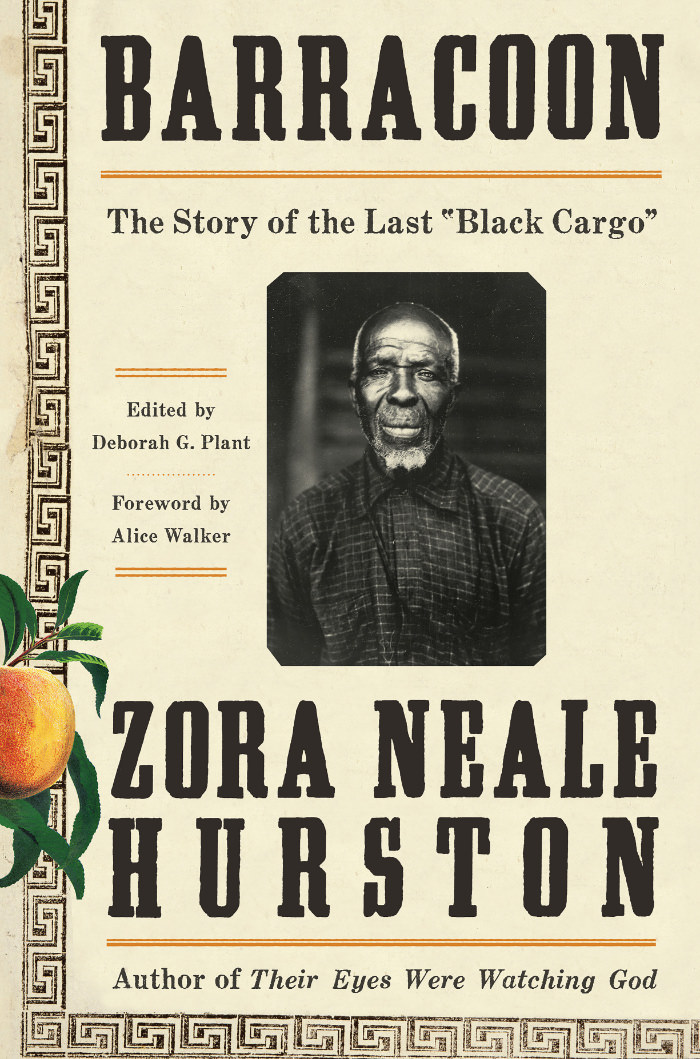
In 1927, Zora Neale Hurston went to Plateau, Alabama, just outside Mobile, to interview eighty-six-year-old Cudjo Lewis. Of the millions of men, women, and children transported from Africa to America as slaves, Cudjo was then the only person alive to tell the story of this integral part of the nation’s history. Hurston was there to record Cudjo’s firsthand account of the raid that led to his capture and bondage fifty years after the Atlantic slave trade was outlawed in the United States.
In 1931, Hurston returned to Plateau, the African-centric community three miles from Mobile founded by Cudjo and other former slaves from his ship. Spending more than three months there, she talked in depth with Cudjo about the details of his life. During those weeks, the young writer and the elderly formerly enslaved man ate peaches and watermelon that grew in the backyard and talked about Cudjo’s past—memories from his childhood in Africa, the horrors of being captured and held in a barracoon for selection by American slavers, the harrowing experience of the Middle Passage packed with more than 100 other souls aboard the Clotilda, and the years he spent in slavery until the end of the Civil War.
Based on those interviews, featuring Cudjo’s unique vernacular, and written from Hurston’s perspective with the compassion and singular style that have made her one of the preeminent American authors of the twentieth-century, Barracoon masterfully illustrates the tragedy of slavery and of one life forever defined by it. Offering insight into the pernicious legacy that continues to haunt us all, black and white, this poignant and powerful work is an invaluable contribution to our shared history and culture.
Praise for Barracoon
Zora Neale Hurston’s genius has once again produced a Maestrapiece.— Alice Walker, Pulitzer Prize-winning author of The Color Purple
Their Eyes Were Watching God
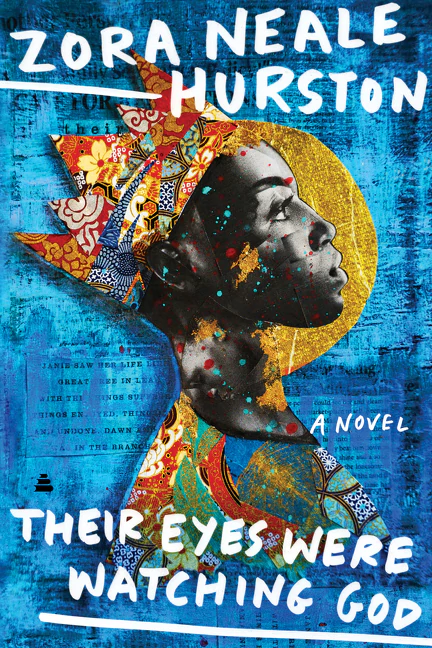
When first published in 1937, this novel about a proud, independent black woman was generally dismissed by male reviewers. Out of print for almost thirty years, but since its reissue in paperback edition by the University of Illionois Press in 1978, Their Eyes Were Watching God has become the most widely read and highly acclaimed novel in the canon of African-American literature.
With haunting sympathy and piercing immediacy, Their Eyes Were Watching God tells the story of Janie Crawford’s evolving selfhood through three marriages. Light-skinned, long-haired, dreamy as a child, Janie grows up expecting better treatment than she gets until she meets Tea Cake, a younger man who engages her heart and spirit in equal measure and gives her the chance to enjoy life without being a man’s mule or adornment. Though Jaine’s story does not end happily, it does draw to a satisfying conclusion. Janie is one black woman who doesn’t have to live lost in sorrow, bitterness, fear, or foolish romantic dreams, instead Janie proclaims that she has done “two things everbody’s got tuh do fuh theyselves. They got tuh go tuh God, and they got tuh find out about livin' fuh theyselves.”
Praise for Their Eyes Were Watching God
There is no book more important to me than this one.— Alice Walker on Their Eyes Were Watching God
Mules and Men
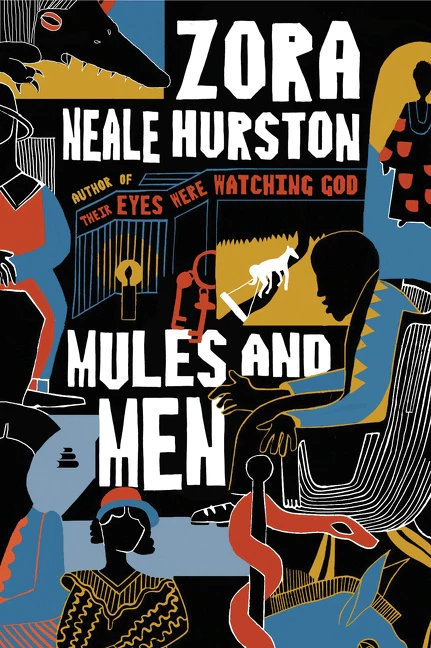
Mules and Men is the first great collection of black America’s folk world. In the 1930’s, Zora Neale Hurston returned to her “native village” of Eatonville, Florida to record the oral histories, sermons and songs, dating back to the time of slavery, which she remembered hearing as a child. In her quest, she found herself and her history throughout these highly metaphorical folk-tales, “big old lies,” and the lyrical language of song. With this collection, Zora Neale Hurston has come to reveal’and preserve’a beautiful and important part of American culture.
Praise for Mules and Men
Simply the most exciting book on black folklore and culture I have ever read.— Roger D. Abrahams
The Complete Stories
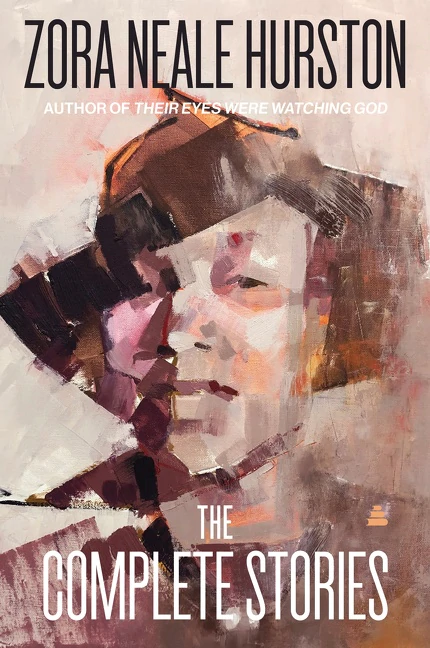
This landmark gathering of Zora Neale Hurston’s short fiction - most of which appeared only in literary magazines during her lifetime - reveals the evolution of one of the most important African American writers. Spanning her career from 1921 to 1955, these stories attest to Hurston’s tremendous range and establish themes that recur in her longer fiction. With rich language and imagery, the stories in this collection not only map Hurston’s development and concerns as a writer, but also provide an invaluable reflection of the mind and imagination of the author of the acclaimed novel Their Eyes Were Watching God.
Praise for The Complete Stories
Dust Tracks on a Road
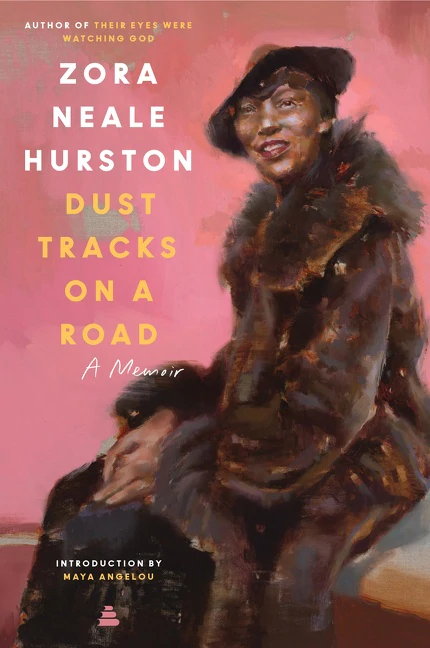
First published in 1942 at the height of her popularity, Dust Tracks on a Road is Zora Neale Hurston’s candid, funny, bold, and poignant autobiography, an imaginative and exuberant account of her rise from childhood poverty in the rural South to a prominent place among the leading artists and intellectuals of the Harlem Renaissance. As compelling as her acclaimed fiction, Hurston’s very personal literary self-portrait offers a revealing, often audacious glimpse into the life—public and private—of an extraordinary artist, anthropologist, chronicler, and champion of the black experience in America. Full of the wit and wisdom of a proud, spirited woman who started off low and climbed high, Dust Tracks on a Road is a rare treasure from one of literature’s most cherished voices.
Praise for Dust Tracks on a Road
Warm, witty, imaginative…This is a rich and winning book.— The New Yorker
Every Tongue Got to Confess
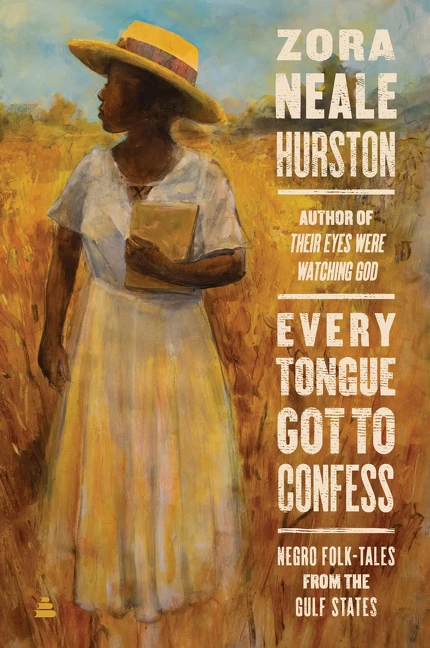
African-American folklore was Zora Neale Hurston’s first love. Collected in the late 1920s, Every Tongue Got to Confess is the third volume of folk-tales from the celebrated author of Their Eyes Were Watching God. It is published here for the first time.
These hilarious, bittersweet, often saucy folk-tales – some of which date back to the Civil War – provide a fascinating, verdant slice of African-American life in the rural South at the turn of the twentieth century. Arranged according to subject – from God Tales, Preacher Tales, and Devil Tales to Heaven Tales, White-Folk Tales, and Mistaken Identity Tales – they reveal attitudes about slavery, faith, race relations, family, and romance that have been passed on for generations. They capture the heart and soul of the vital, independent, and creative community that so inspired Zora Neale Hurston.
In the foreword, author John Edgar Wideman discusses the impact of Hurston’s pioneering effort to preserve the African-American oral tradition and shows readers how to read these folk tales in the historical and literary context that has – and has not – changed over the years. And in the introduction, Hurston scholar Carla Kaplan explains how these folk-tales were collected, lost, and found, and examines their profound significance today.
In Every Tongue Got to Confess, Zora Neale Hurston records, with uncanny precision, the voices of ordinary people and pays tribute to the richness of Black vernacular – its crisp self-awareness, singular wit, and improvisational wordplay. These folk-tales reflect the joys and sorrows of the African-American experience, celebrate the redemptive power of storytelling, and showcase the continuous presence in America of an Africanized language that flourishes to this day.
Praise for Every Tongue Got to Confess
An extraordinary treasure.— Boston Globe
Mule Bone
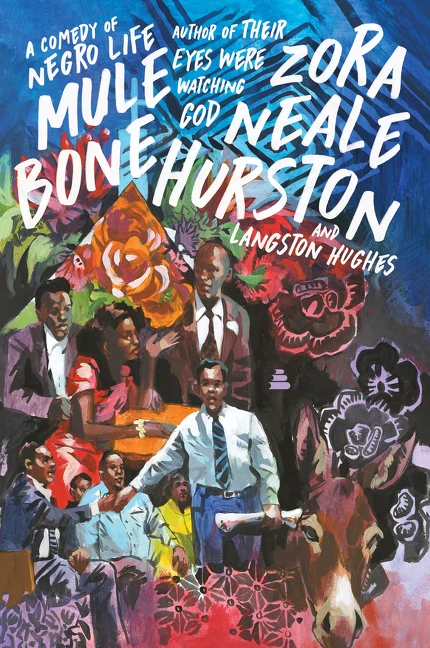
Mule Bone is the only collaboration between Zora Neale Hurston and Langston Hughes, two stars of the Harlem Renaissance, and it holds an unparalleled place in the annals of African-American theater. Set in Eatonville, Florida–Hurston’s hometown and the inspiration for much of her fiction–this energetic and often farcical play centers on Jim and Dave, a two-man song-and-dance team, and Daisy, the woman who comes between them. Overcome by jealousy, Jim hits Dave with a mule bone and hilarity follows chaos as the town splits into two factions: the Methodists, who want to pardon Jim; and the Baptists, who wish to banish him for his crime.
Included in this edition is the fascinating account of the Mule Bone copyright dispute between Hurston and Hughes that ended their friendship and prevented the play from being performed until its debut production at the Lincoln Center Theater in New York City in 1991–sixty years after it was written. Also included is “The Bone of Contention,” Hurston’s short story on which the play was based; personal and often heated correspondence between the authors; and critical essays that illuminate the play and the dazzling period that came to be known as the Harlem Renaissance.
Praise for Mule Bone
Moses, Man of the Mountain
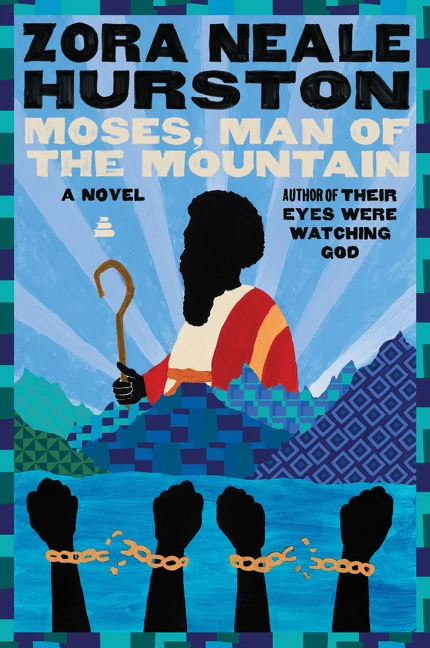
In this 1939 novel based on the familiar story of the Exodus, Zora Neale Hurston blends the Moses of the Old Testament with the Moses of black folklore and song to create a compelling allegory of power, redemption, and faith. Narrated in a mixture of biblical rhetoric, black dialect, and colloquial English, Hurston traces Moses' life from the day he Is launched into the Nile river in a reed basket, to his development as a great magician, to his transformation into the heroic rebel leader, the Great Emancipator. From his dramatic confrontations with Pharaoh to his fragile negotiations with the wary Hebrews, this very human story is told with great humor, passion, and psychological insight–the hallmarks of Hurston as a writer and champion of black culture.
Praise for Moses, Man of the Mountain
The real thing, warm, humorous, poetic.— The New Yorker
Seraph on the Suwanee
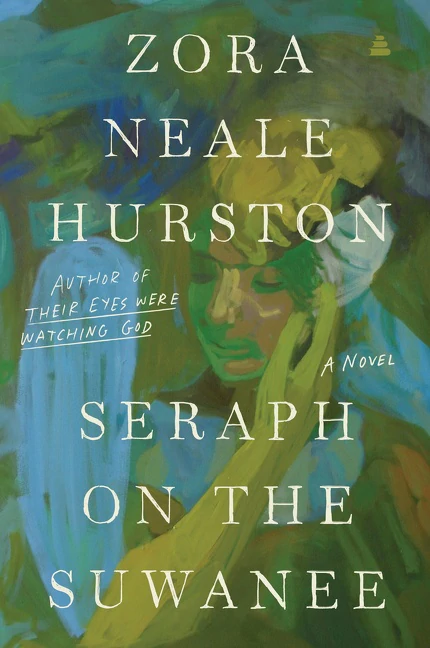
This novel of turn-of-the-century white “Florida Crackers” marks a daring departure for the author famous for her complex accounts of black culture and heritage. Full of insights into the nature of love, attraction, faith, and loyalty, Seraph on the Suwanee is the compelling story of two people at once deeply in love and deeply at odds. The heroine, young Arvay Henson, is convinced she will never find true love and happiness, and defends herself from unwanted suitors by throwing hysterical fits and professing religious fervor. Arvay meets her match, however, in handsome Jim Meserve, a bright, enterprising young man who knows that Arvay is the woman for him, and refuses to allow her to convince him otherwise. With the same passion and understanding that have made Their Eyes Were Watching God a classic, Hurston explores the evolution of a marriage full of love but very little communication and the desires of a young woman In search of herself and her place in the world.
Praise for Seraph on the Suwanee
A simple, colorfully written, and moving novel.— Saturday Review of Literature
Tell My Horse
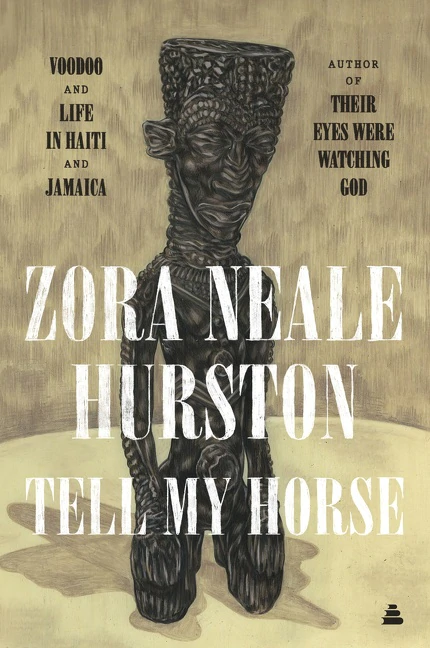
As a first-hand account of the weird mysteries and horrors of voodoo, Tell My Horse is an invaluable resource and fascinating guide. Based on Zora Neale Hurston’s personal experiences in Haiti and Jamaica, where she participated as an initiate rather than just an observer of voodoo practices during her visits in the 1930s, this travelogue into a dark world paints a vividly authentic picture of ceremonies and customs and superstitions of great cultural interest.
Praise for Tell My Horse
Strikingly dramatic, yet simple and unrestrained…an unusual and intensely interesting book richly packed with strange information.— New York Times Book Review
Jonah’s Gourd Vine
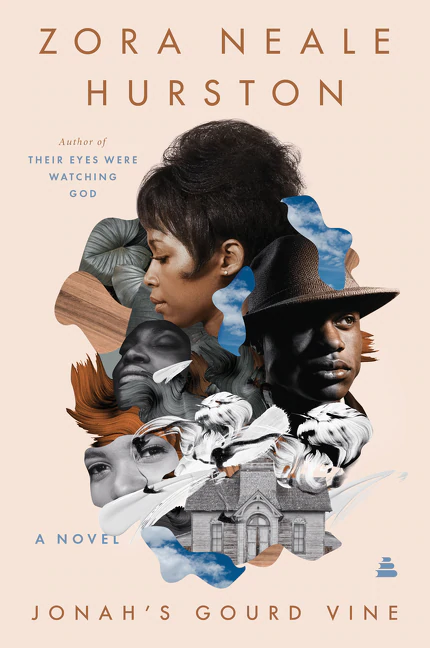
Jonah’s Gourd Vine, Zora Neale Hurston’s first novel, originally published in 1934, tells the story of John Buddy Pearson, “a living exultation” of a young man who loves too many women for his own good. Lucy, his long-suffering wife, is his true love, but there’s also Mehaley and Big ‘Oman, as well as the scheming Hattie, who conjures hoodoo spells to ensure his attentions. Even after becoming the popular pastor of Zion Hope, where his sermons and prayers for cleansing rouse the congregation’s fervor, John has to confess that though he is a preacher on Sundays, he is a “natchel man” the rest of the week. And so in this sympathetic portrait of a man and his community, Zora Neale Hurston shows that faith, tolerance, and good intentions cannot resolve the tension between the spiritual and the physical. That she makes this age-old dilemma come so alive is a tribute to her understanding of the vagaries of human nature.
Praise for Jonah’s Gourd Vine
A bold and beautiful book, many a page priceless and unforgettable.— Carl Sandburg